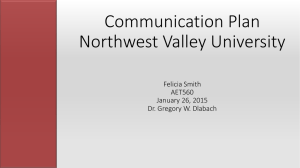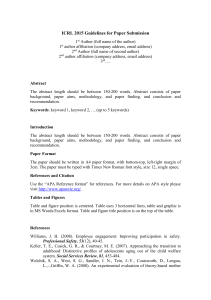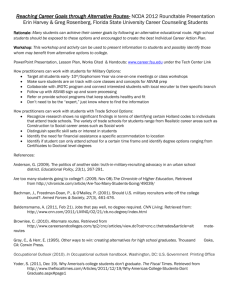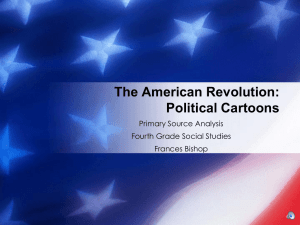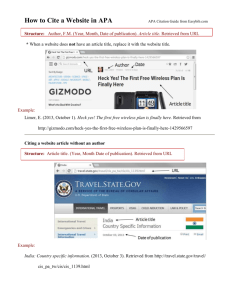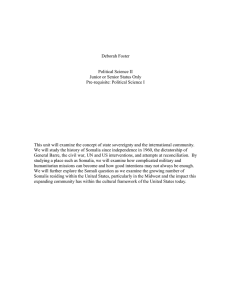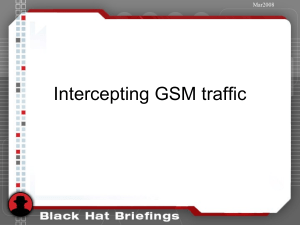Presentation - Seneca College
advertisement
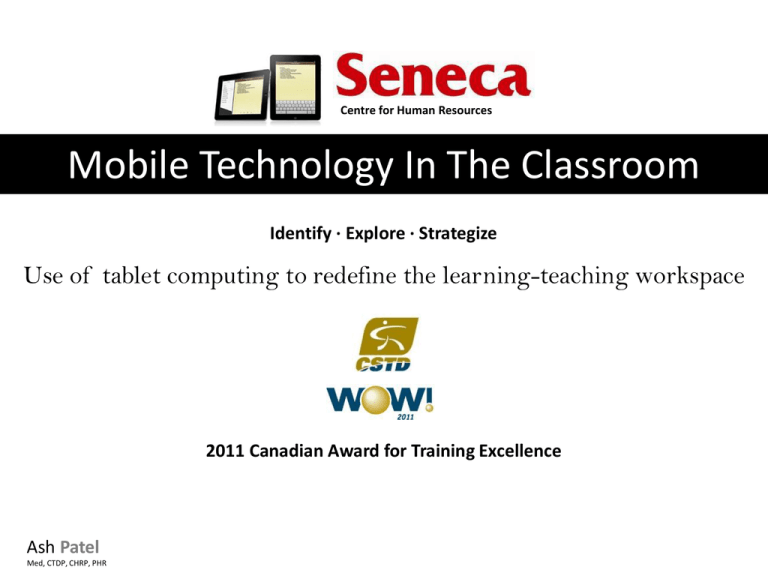
Centre for Human Resources Mobile Technology In The Classroom Identify · Explore · Strategize Use of tablet computing to redefine the learning-teaching workspace 2011 Canadian Award for Training Excellence Ash Patel Med, CTDP, CHRP, PHR Mobile Technology Integration Project The transmission of material in a medium that the audience is highly receptive to, leads to a higher level of transformation of the idea and development of meaning related to the material. Microsoft ClipArt Impact Development of higher affinity with learning due to instant access to material, media and collaborative functionality. Higher yield of objective achievement in specific courses. Accommodation of generation Y, Net, Echo, Millennial learning. Learning on student’s terms – based on a approach of high interest to them. Repository of mobile tools (apps) that fit the needs of the discipline and subject. College administration is made more streamlined through instant information sharing. Industry inherit tech-savvy, mobile workspace ready graduates.. iPad vs. Android Mobile technologies are very similar in functionality. Differences between the two technologies include: • • • • • • Form factor Ease of use and friendliness Flash vs. non-Flash Java issues Apps and marketplace Personal preference Generic Value - Functionality Mobile tablets offer the value of portable access to resources that bring ideas to learners when and where they need them – fast. Internet access – with customized icons. Dedicated Applications eBooks (custom) CourseSmart Video / Audio Office Documents – Cloud Computing Synchronous/Asynchronous Collaboration Video Conferencing R&R (fun and games for de-stressing) Remote Projection Remote Printing Mobile technology is not designed to replace traditional computing – it serves to enhance the power of information access. Mobile Technology Integration Project Learning occurs when vetted knowledge is, at the least transmitted to the mind of the learner. At the most, learning is elevated when the transmitted knowledge is transformed into some new form of meaning. In a world where data is free flowing and in abundance, business students are inundated with material that needs to be filtered, categorized and processed in order to succeed. Taking data and adding layers of meaning to it creates information – that which is of great importance to the successful functioning of organizations. The business community requires employees that are able to harness the power of the information and create value for organizations. The development of individuals with business specific knowledge, skills and abilities, together with a strong element of tech savvyness is the primary objective of the Faculty of Business at Seneca College. Credits, References & Resources L. W. Anderson, D. R. Krathwohl, Peter W. Airasian, Kathleen A. Cruikshank, Richard E. Mayer, Paul R. Pintrich, James Raths, and Merlin C. Wittrock (eds) (2000) A Taxonomy for Learning, Teaching, and Assessing: A Revision of Bloom's Taxonomy of Educational Objectives Allyn and Bacon Armour, Stephanie "Generation Y: They've arrived at work with a new attitude". USA Today. http://www.usatoday.com/money/workplace/2005-11-06-gen-y_x.htm. Retrieved 2009-11-27. Cheese, Peter "Netting the Net Generation". Businessweek.com. http://www.businessweek.com/managing/content/mar2008/ca20080313_241443.htm?campaign_id=rss_null. Retrieved 2010-08-24. Naismith, L et al (2008). Literature Review in Mobile Technologies and Learning. http://elearning.typepad.com/thelearnedman/mobile_learning/reports/futurelab_review_11.pdf Retrieved April 20, 2011. Shapira, Ian "What Comes Next After Generation X?". Education (The Washington Post): pp. C01. http://www.washingtonpost.com/wp-dyn/content/article/2008/07/05/AR2008070501599.html. Retrieved 2008-07-19. "The Online NewsHour: Generation Next". PBS. http://www.pbs.org/newshour/generation-next/index-old.html. Retrieved 2010-08-24. Resources The C Initiative http://www.thecinitiative.com Clarity Innovations http://www.clarity-innovations.com Course Smart http://coursesmart.info Credits, References & Resources Educase http://www.educause.edu Gadget News http://desinformado.com Helge Scherlund's eLearning News http://scherlund.blogspot.com Institute for Knowledge, Innovation and Technology http://ikit.org Iowa State University http://www.cio.iastate.edu/horizon/2010-09-20-mobile/ Inkelaar, Tom. Mobile Portland http://www.mobileportland.com/events/mobile-technology-education Net Learning Space http://www.netlearningspace.com/ Tech & Learning http://techlearning.com/ Tech Republic http://www.techrepublic.com University of Melbourne http://newsroom.melbourne.edu/news/n-357 Virginia Tech University http://ece.vt.edu
